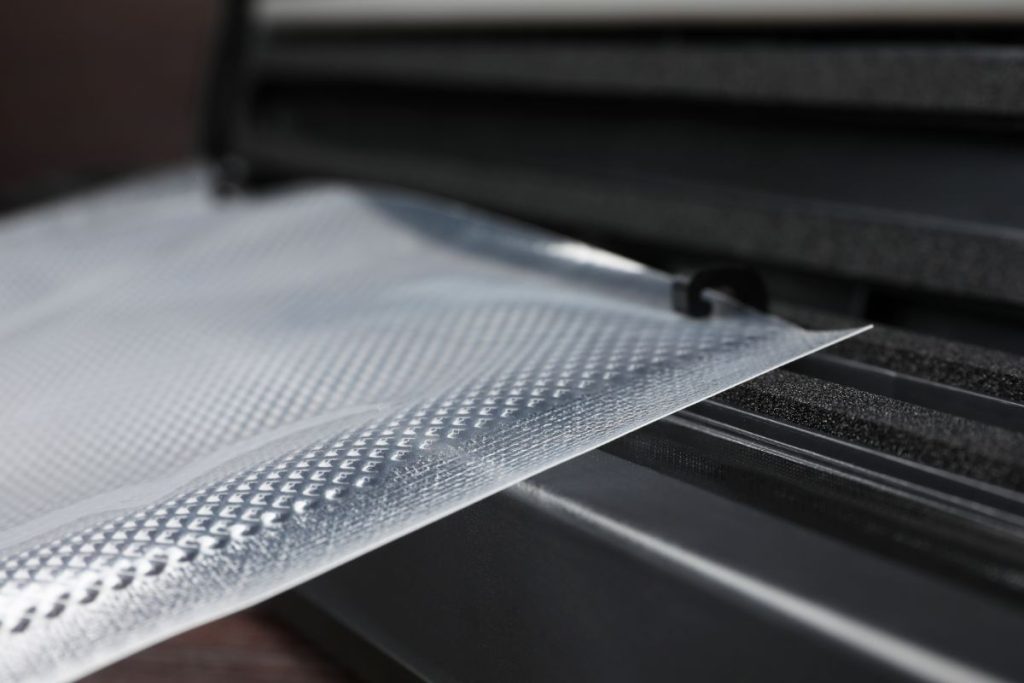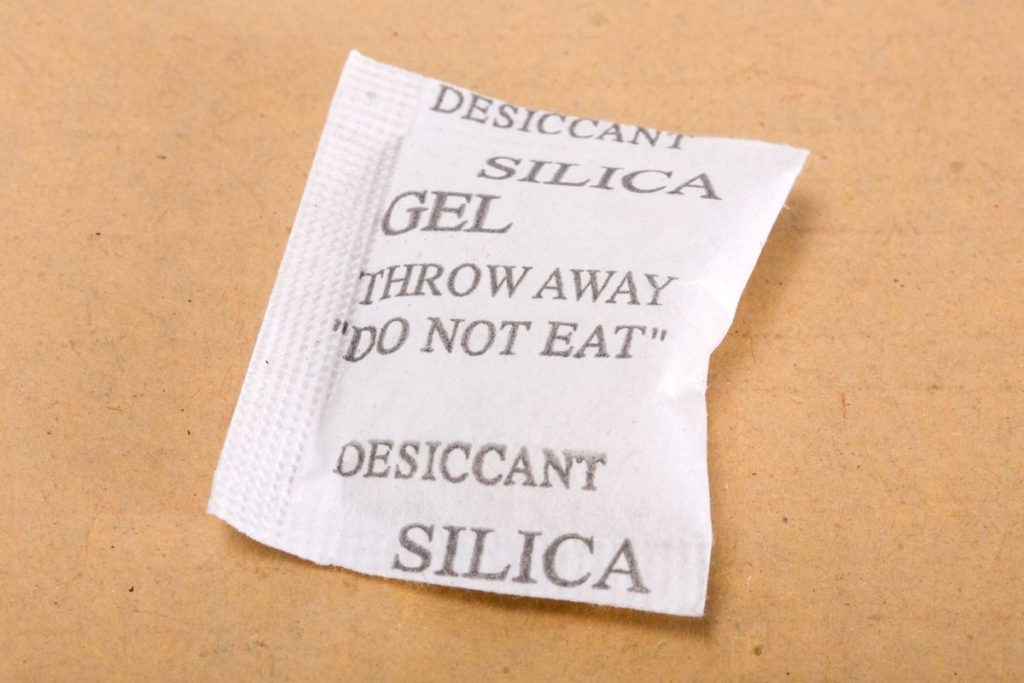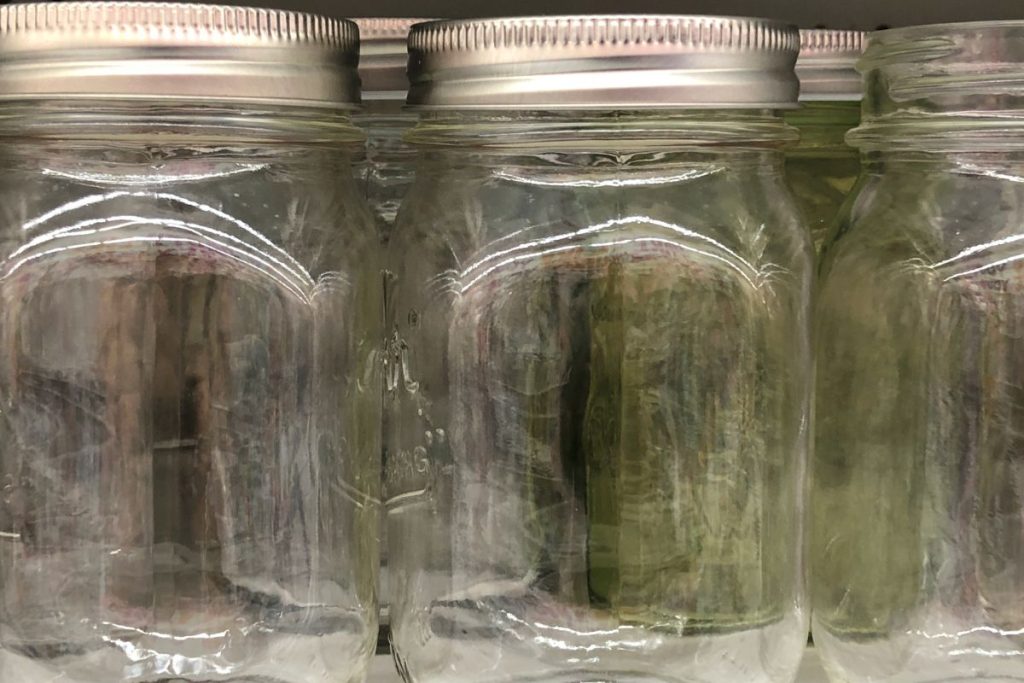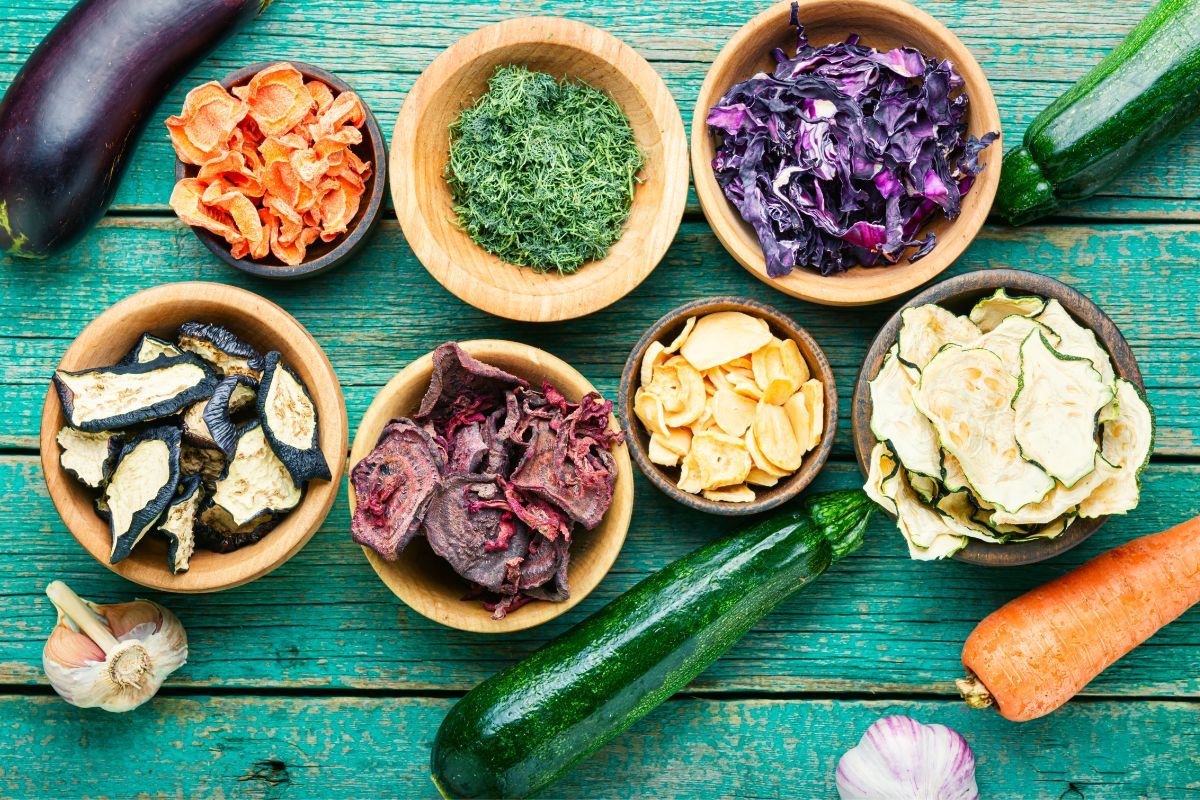You can store dehydrated vegetables in airtight containers, glass jars with tight-fitting lids, or Mylar bags. Another great option is vacuum packaging. Store dehydrated vegetables in cool, dark areas to help them retain their nutrients.
Dehydrating vegetables is a fantastic way to preserve your harvest or save time and money when your nearby grocery store has produce on sale. Dehydrated veggies have a great flavor and are commonly used in stews, soups, sauces, and casseroles.
Store dehydrated vegetables in airtight containers, freezer bags, or Mylar bags with oxygen absorbers. In this post, you’ll learn how to store dehydrated vegetables to extend their shelf life.
Table of Contents
The Best Way to Store Dehydrated Vegetables
You can effectively store your dehydrated vegetables in different ways. The aim is to protect them from environmental factors such as moisture, air, and light, so as long as you can do this, there is no single best way of storing dehydrated vegetables. The best location to store dehydrated vegetables is in a cool, dark, dry place, such as a cupboard away from any heat source or light penetration.
Use any of these different methods for storing dehydrated vegetables:
1. Airtight containers
You can use airtight containers made of acrylic, glass, plastic, or stainless steel to store your dehydrated vegetables. They should have an airtight seal to prevent moisture and air from getting in. This will allow your dried vegetables to last for an extended amount of time. Be sure that any container you choose is food safe and BPA-free.
The airtight containers you choose should also be odor-resistant to help keep the aroma and flavor of the dried food intact. You should store the containers in a cool, dark place.
2. Glass jars with tight-fitting lids
Glass jars, such as canning jars with tight-fitting lids, are ideal for food preservation. When you place dried vegetables in these jars and close the lid properly, these glass jars will be as good for food storage as vacuum-sealed bags. Keep in mind that glass allows light penetration, so store them away from direct sunlight.
3. Vacuum Packaging
Vacuum-sealed bags are another great option for storing dried fruits and vegetables. Vacuum packaging prevents air from coming into contact with your dehydrated foods. This will help keep dried vegetables fresh for a long time. You need a vacuum sealer and vacuum bags to protect your dehydrated foods from dust, moisture, or insects.
It’s also a good idea to vacuum-seal dehydrated vegetables before putting them in the freezer to prevent freezer burn.
4. Storing Dried Vegetables in the Freezer
If you’re concerned about the fat content of your dried foods (such as high-fat avocados), keep them in the freezer to extend their shelf life.
Dehydrated foods will last much longer if stored in the freezer. You should place dried foods in airtight containers before placing them in the freezer, ensuring a tight seal to prevent moisture from getting in and ruining your hard work.
If you choose to store your dehydrated food in the freezer, be sure to eat the dehydrated fruits and vegetables as soon as you thaw them. While freezing dried foods works for long-term food storage, it causes changes in the food’s quality and can lead to ice crystals in the dried food.

Storing Dried Foods in Mylar Bags
Mylar bags are another great option for storing dried foods. Many places that offer foods for long-term storage sell goods packaged in Mylar bags.
Make sure the bags you buy are high quality and suitable for storing food products. You should store Mylar bags in a cool, dark place.
If you want to store foods that have pointed ends in Mylar bags, make sure to add paper towels to support the food. Dried fruit, wheat, and rice are often difficult to store in Mylar bags because they have sharp edges.
Oxygen Absorbers and Mylar Bags
Oxygen absorbers are particularly helpful when storing freeze-dried foods and can help maintain the freshness of dried foods. Oxygen absorbers are designed to absorb oxygen and produce nitrogen to maintain freshness.
It’s recommended to seal the bags immediately to ensure the oxygen absorbers work well. It takes around 2 to 4 hours for oxygen absorbers to be effective. However, you should seal the bags as soon as possible.
If you want to keep the moisture content of dehydrated foods low, it’s also a good idea to use a desiccant packet. Oxygen absorbers and desiccant packets are great for keeping dehydrated foods fresh, but you should not use them together as they are ineffective when used together.

How Do You Store Dehydrated Vegetables in Mason Jars?
You can store any type of product in mason jars, and dried products are no different. You should store dehydrated vegetables in mason jars only if you want to use them regularly.
Here are some essential tips for storing dehydrated vegetables in mason jars:
- Also, make sure to close the lid tightly to avoid leakage. To avoid breakage, avoid stacking the containers on top of each other.
- Always use transparent mason jars to see the products inside.
- Avoid filling the containers to the brim to prevent spoilage.
- Be sure to label the mason jars with the contents and date to know how long you have stored the food for food safety.
- Open the lid only if you want to take out some dehydrated vegetables. However, it’s still possible to keep dehydrated vegetables in mason jars for a longer period if the humidity and temperature are favorable in your kitchen.
- To extend the shelf life of your dried vegetables, it’s important to keep the mason jars in a cool, dark place.
You should clean mason jars before storing your dehydrated vegetables. Any lingering odors or moisture from previously stored foods will degrade the quality of your dried vegetables.
By following these tips, you can store dehydrated vegetables in Mason jars for a long period without the risk of spoilage.

How Long Can You Keep Dehydrated Vegetables?
You can store dehydrated vegetables for about 6 months at 60°F (15°C). If correctly sealed, you can store dehydrated vegetables in airtight containers for 8–10 years at steady room temperatures of 70°F (21°C).
If kept in Mylar bags with reliable oxygen absorbers, dehydrated vegetables can last for 20 years or even longer.
What Are the Benefits of Dehydrated Vegetables?
Drying vegetables is one of the best methods of preserving them.
Here are some key benefits of dehydrating vegetables:
- Dehydrated vegetables are great for long term storage.
- Dehydrated vegetables are often more affordable than repeatedly buying frozen vegetables.
- Dehydrated vegetables have a longer shelf life than fresh vegetables.
- Dehydrated veggies are smaller and lighter, so they are much easier to carry and store.
- Dried vegetables are safe, tasty, and easy to use.
- Drying vegetables preserves most of the nutrients in vegetables.
- Dehydrating prevents food spoilage and excess waste.
- Dehydrating veggies is a convenient option for anyone who needs a constant supply of veggies.
Best Products to Use for Storing Dehydrated Vegetables
These are some of my favorite products to use when storing dehydrated vegetables.
- A Silica Gel Desiccant Pack: You can use a silica gel desiccant pack alongside your storage containers if you live in a humid or damp area to help keep your food dry.
- FoodSaver Vacuum Sealers: When storing dehydrated foods, you can place them in any airtight container or jar. To prevent oxidation and keep your dried food dry, use a vacuum sealer.
- Latex Gloves: Wear high-quality latex gloves to avoid transferring pathogens from your hands to your dehydrated vegetables.
- Mason Jars and Mylar Bags: You can use quality mason jars to store your dehydrated vegetables. Since these occupy a lot of space, you can consider using Mylar bags instead if you are low on storage space.
- Oxygen Absorbers: When it comes to storing dehydrated food, the most important thing is to ensure the storage containers are airtight. The foods should be free from air and moisture to prolong their shelf life. If air gets in contact with the dehydrated vegetables, it can cause spoilage. Many people use oxygen absorbers for storing dried foods in Mylar bags and mason bags.
Labeling Dehydrated Vegetables
It is essential to label storage bags with the date and time before filling them. If you fail to do so, it can be hard to identify the contents once the bag is sealed, and you may end up with mystery storage bags. To avoid this, label the storage containers as soon as possible.
Dehydrated veggies may look similar, and some might lose their original smell. Powders might also look alike, especially if you have plenty of them. Make sure to label your storage containers with the food product and the date they were dehydrated.
The aim is to enjoy easy access to essential food items saved for a rainy day. When sealed and stored in properly labeled storage containers, dehydrated vegetables can last for a long period of time.

